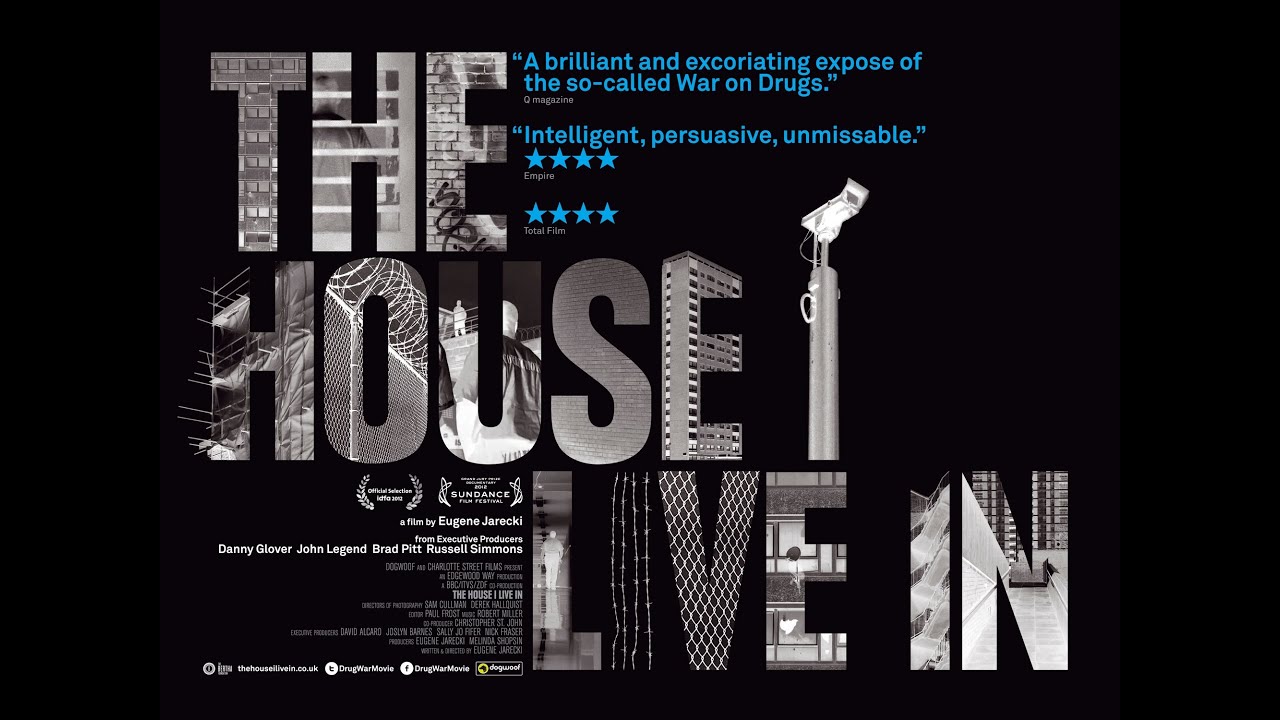"For people to understand the scale and urgency of this crisis, I felt that facts, figures and expert testimony weren’t enough, so I sought out individuals whose lives were directly and deeply shaped by the War on Drugs."
So suggests Eugene Jarecki (Why We Fight, The Trials of Henry Kissenger) in the preamble to his new documentary. The House I Live In effectively mixes insightful talking heads, often striking quantitative data and individual testimony to explicate the failings of over forty years of hardline US narcotics legislation – rolled out back in 1971 by President Nixon as the "War on Drugs", as a response to this supposed public enemy numero uno. The central rhetoric that Jarecki’s film propounds, through this blend of testimony and relentless statistics, is that American policy has been seriously misguided, targeting and imprisoning low=level end users without effectively tackling the causes or higher sources of drug use and addiction. And the figures really speak for themselves: today there are more people behind bars for nonviolent drug offences than were incarcerated for all crimes, violent or otherwise, in 1970.
Jarecki draws from a diverse cultural spread, two consistently present and insightful contributors being creator of The Wire David Simon and historian Richard Miller. The most engaging and affecting sequence presents the futile position of a variety of law enforcement agencies within the narcotics sector. The bleak testimonies of several officers suggest that there is no real end goal in their work, just the repeated incarceration of a massive number of poverty-stricken habitual users. Simon and Miller’s views and statistics are intercut effectively with these personal perspectives, the former pair’s discussion offering a wider angle on the structural and institutional failures that have deemed such law enforcement work almost completely futile.
And yet, as cohesive and convincing as these pockets of argumentation are, overall The House I Live In feels slightly unfocused and at other times wholly overbearing. The reasons for this can perhaps be pinned onto the construction of the opening, as well as the denouement. Unusually for a Jarecki doc he imbricates himself as a central character, someone on a personal quest. Early on we are presented with cine-film of a young Jarecki with his childhood nanny, Nannie Jeter. It becomes apparent that the catalyst for the film’s creation was the drug-related death of Nannie’s son. Nannie and her family’s story provides an effective entry point: as with many wide scope political documentaries, we start with the local impact case studies before moving to the national/global causes and consequences. The problem is that this local beginning places the director a little too close to his material, and his faux-naïf "I began to see"-isms wear a little thin a little too quickly.
This personal quest framing device lessens the impact of the socio-political argumentation which comes later. The filmmaker also seems to broach too much, almost bolting on sections that are not fully explored, but certainly deserve further investigation. For example, the all too brief examination of more recent methamphetamine addiction among blue-collar workers is never sufficiently fleshed out or meshed into the wider argument.
The final turn the documentary makes into its climax is also potentially problematic. The main suggestion from several positions, as articulated by Simon, is that, "The drug war is a holocaust in slow motion." Outlining the five steps towards "mass extermination", historian Miller effectively argues for the presence of the first three (identification, ostracisation and isolation) within the US system. However, the argument for the final two elements (concentration and annihilation) is totally implausible, and simply overcooks some otherwise largely effective reasoning.
The House I Live In has all the constituent elements for an enthralling political doc, but suffers from trying to draw together a surplus of elements. At times it feels like Jarecki is tackling too many topics, either in too much detail (his personal angle, the holocaust rhetoric) or not enough (blue-collar metamphetamine addiction). Within this slightly bloated and unfocused work there are potentially two or three more cohesive films rattling around.
The House I Live In goes on nationwide theatrical release from Friday November 23; for a full list of screenings check the Dogwoof website.


